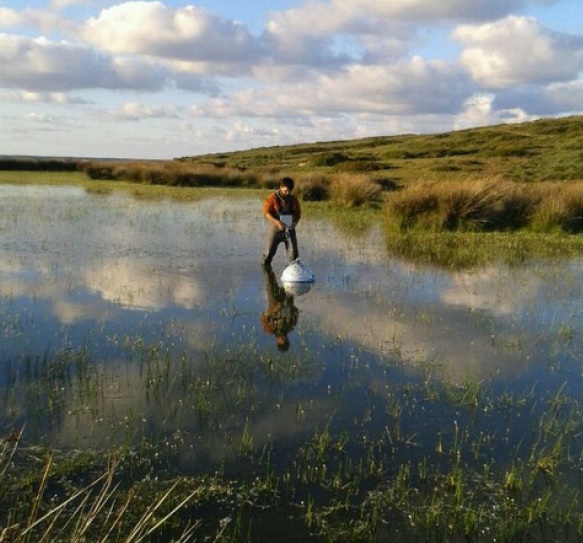15-11-2019
Plants addicted to bicarbonate
It is well known that plants use atmospheric carbon dioxide to convert it into organic matter during photosynthesis. But it is less known than some aquatic plants of rivers and lakes have the ability to use, besides carbon dioxide dissolved in water, bicarbonate as its carbon source. In an article published in Science, a team of scientists led by the University of Copenhagen has described for the first time the worldwide distribution of aquatic plants that can use bicarbonate for photosynthesis.
In a comment accompanying the article, the researchers Biel Obrador, from the Department of Evolutionary Biology, Ecology and Environmental Sciences of the Faculty of Biology and the Biodiversity Research Institute (IRBio) of the University of Barcelona (UB), and Rafael Marcé, from the Catalan Institute for Water Research (ICRA) and the University of Girona (UdG), analyze the implications of this work for the study and protection of aquatic plants of rivers and lakes.
Aquatic plants are fundamental for the functioning of freshwater ecosystems, and any impact on them causes a dramatic change in the whole ecosystem. In the comment, the authors state that that the new work is a milestone for understanding of how climate change will affect survival and distribution of aquatic plants that can use bicarbonate, which will imply changes in the biodiversity of rivers and lakes. This could affect, for example, water transparency in lakes, or fish populations in rivers.
The authors stress that despite a large number of works focus on the study of carbon fluxes in aquatic ecosystems, our understanding of the dynamics of carbon in rivers and lakes is still limited, and that more studies that explicitly address all components of the carbon cycle in aquatic ecosystems are needed. Drs. Marcé and Obrador conclude that we need studies like the one published in Science, which, using Ecology as a multidisciplinary science, help us decipher Nature's secrets which are not always easy to reveal.
Further information
https://science.sciencemag.org/content/366/6467/805
Source: Comunicació UB
